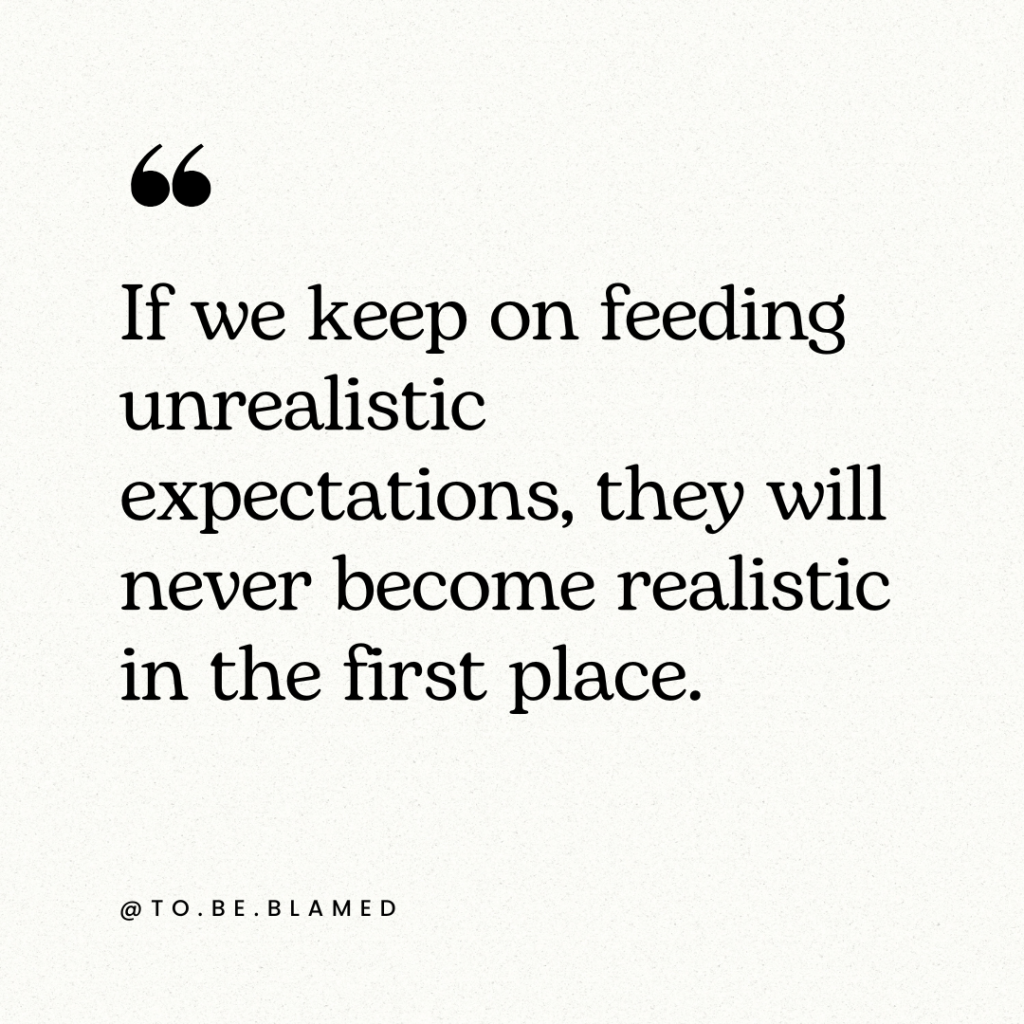How great expectations are leading to great disappointment and it’s all our fault.
Disclaimer: This has nothing to do with the book from Charles Dickens (or maybe it does).
Let’s face it, we live in a world with unprecedently great expectations. Everyone expects something out of you, you expect a great deal of those around you and on yourself as well. With all the technology around us, we just expect more more and more.
You are expected to be a great parent, the best employee your company can have, the best partner at home and be extremely fit – both physically and mentally. Although we always had expectations – it’s part of being human after all – the imbalance started to come when suddendly work expectations just kept on growing as if not even the sky is a limit.
In a post-covid world, companies got hooked to the long hours we were doing when working from home while at the same time they started to demand all employees to be back at the office, some the full 5 days others some kind of hybrid in between.
The concept is a lot older really, but did indeed accelerate with technology and the rise of the smart phones. You can have emails and internal messaging 24/7 so you are expected to pick up on those email and messages all the time. Bit by bit we started to do so. We wake up in the morning and check emails and work messages (not just instangrams and tik-toks). In the evening, while you are doing dinner, you end up checking emails too and after dinner might even be back to your desk – now that we all know we can work from home – and continue just to catch up on a few things.
Then weekend comes and because the week was so crazy we end up doing some work over the week too. What was meant to be just a quick scroll through the emails and to dos, easily becomes a few hours which are not eating from your personal and rest time. Little by little we do more and more.
This keeps getting encouraged when celebrating success at your organisation. How many individual or team awards will contain something in the lines of: “This team or individual worked weekends and really long hours to get this work done! Amazing, well done!”. I can’t but roll my eyes at this as I know it keeps on fueling the expectation that we need to carry on to do more.
If you see your whole team logging late and sending emails over the weekend you will end up – unconsciously – feeling guilty and also wanting to be there for the team. But the more everyone does, the more management expects you to do.
The reward for good work is always more work.
Now breaking news, it’s all our fault as well.

Gen Z has a point here (Good summary from Deloitte on Gen Z here). All other generations believe they are lazy, spoiled and don’t want to commit to anything. But what if they have a point? They want to do meaningful work and want to feel connected and don’t seem to be willing to accept workism. I say they do have a point and we should try to see the world from their point of view.
If we all continue to fueling the constant rising expectations how can we expect they will become realistic? It’s everyone’s role to bring them down to earth.
Protect your boundaries
We all have the same 24h, but if you want to avoid burnout or end up consumed by work (workism) then you have to protect your boundaries. Yes there will be cases where indeed you have to do more work. There are major milestones and it’s really critical you are there. But then you need to be able to step down when it’s no longer critical.
A lot of the work that comes late – including requests to work late evenings and weekends – comes down to bad planning. If we don’t challenge those asks, the people responsible for articulate the plans will never step back and revisit what they are doing, they will just continue to use your personal time (and all your team’s time) as contigency to get work done.
Always start by asking: is this really critical? Is someone dying? Will the organization go down or could this result in a major reputational risk? Or does it come down to someone doing bad planning and now you don’t want to say no to the leadership team? If it’s the latter, I’m afraid to say it, but step up to your mistakes. A lot comes due to missing communications between those responsible for planning and the team actually doing the work.
I would never expect someone to be able to plan everything in isolation, you need the experts to tell you how long it takes. With experience, the ones responsible for planning can judge if the estimates are being conservative or not, but that dialogue needs to exist. Just don’t come and ask for your team to work every weekend (or quite a big number of them).
Don’t be afraid to challenge the asks by having a constructive dialogue with your line manager, you might find both learn quite a lot along the way.
As for the organisation’s point of view – as I’ve written quite often – a well rested brain is more efficient at resolving difficult situations and bringing up creative to either resolve big problems or keep on adding more value to clients and stakeholders alike.

